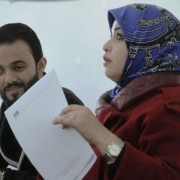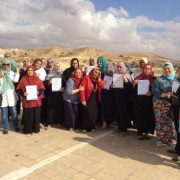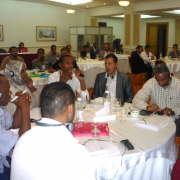
In Tripoli, about 20 young people gather infrequently on Saturdays to discuss their work in youth oriented civil society organizations and student unions and how to play a role in achieving reconciliation among Libyans.

Since the Libyan revolution and ensuing conflict erupted in 2011, damage, theft, and alleged sabotage has plagued the infrastructure in Libya, resulting in power outages and basic challenges for a stable life.

PSES uses applied research to refine and test hypotheses that allow for active and effective private-sector contribution to peace in Libya. The hypotheses are premised on the idea that private sector actors, in collaboration with governmental institutions and local communities, can become agents of peace by finding solutions that meet Libyan private sector and consumer needs for stable markets, functional supply chains, and viable commercial infrastructure. Through pilot engagements, the project will test whether certain types of private sector activities produce greater improvements in the public’s faith in government and public safety. This analysis will help support Libyan-led solutions that address both new and longstanding drivers of conflict and social marginalization, ideally in inclusive, effective, and sustainable ways.

Stabilization Facility for Libya (SFL) supports the Libyan Government of National Accord (GNA) by providing tangible ‘quick-wins’ at the local level in the East, South and West of Libya. SFL implements improvements, such as rehabilitating critical infrastructure and restoring basic public services, in close collaboration with local governing institutions.

USAID Libya, in keeping with its efforts to build long-term capacity of Libyan governance and financial systems, recently partnered with World Bank to conduct a two-week intensive training on Public Financial Management (PFM) best practices for 35 technocrats from Libya’s Ministries of Finance, Planning, and Local Governance, and 11 municipalities. The training, which included two women, used international best practices and PFM practices recommended by the World Bank.







Comment
Make a general inquiry or suggest an improvement.